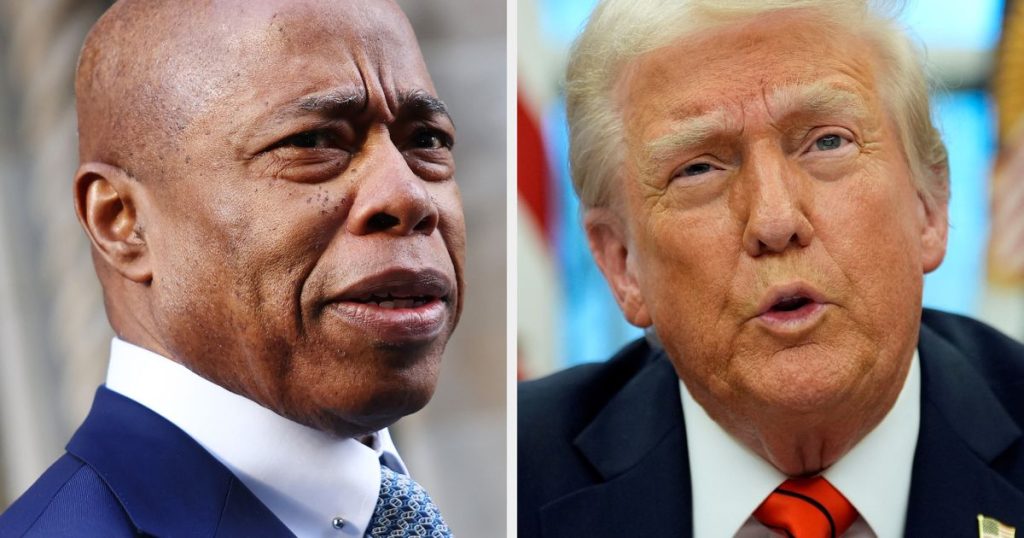In a recent move, New York City Mayor Eric Adams convened a high-level meeting with his top commissioners and officials, outlining specific directives aimed at shaping the administration’s approach under his leadership. The meeting, held at the Municipal Building, emphasized three key instructions: refraining from criticizing President Donald Trump, avoiding interference with federal immigration enforcement, and placing trust in the mayor’s guidance. These directives were communicated clearly, setting a tone for compliance and alignment with the administration’s goals.
Adams’ meeting was prompted by confusion over existing guidelines regarding Immigration and Customs Enforcement (ICE) agents accessing city buildings, such as schools and hospitals. Previously, memos had provided conflicting instructions, with one advising employees to intercept ICE agents until legal advice was sought, while another allowed access if employees felt threatened. The mayor’s intervention aimed to clarify these protocols, ensuring a unified approach across city departments.
A significant focus of the meeting was Adams’ instruction to desist from criticizing President Trump, both publicly and on social media. This stance reflects the mayor’s strategic approach to maintaining a cooperative relationship with the federal government, crucial for securing grants and avoiding funding cuts. Adams’ emphasis on trust and compliance underscored his confidence in navigating the complexities of federal-city relations effectively.
The administration followed up the meeting by releasing a new flow chart to guide city employees’ interactions with non-local law enforcement. Despite this effort, some officials expressed ongoing confusion and concern, highlighting the challenges in implementing consistent protocols across diverse city agencies. The directive to avoid public criticism of Trump extended to all officials, reinforcing the administration’s focus on pragmatism over public dissent.
Criticisms emerged from mayoral candidates, including Comptroller Brad Lander and State Senator Zellnor Myrie, who accused Adams of prioritizing personal interests, such as a potential presidential pardon, over the city’s needs. These critics argue that Adams’ directives undermine New York’s sanctuary city policies and could impede essential services for residents.
Beyond the immediate policy implications, Adams’ relationship with influential figures like President Trump and Elon Musk adds another layer to the city’s political landscape. Adams has expressed admiration for Musk, viewing him as a catalyst for governmental efficiency. Meanwhile, Trump’s threats to withhold federal funding, including recent comments on congestion pricing and infrastructure, raise the stakes for Adams’ administration as it navigates these complex federal relations. The mayor’s approach, while pragmatic, faces criticism for its potential to compromise the city’s values and the well-being of its residents.









